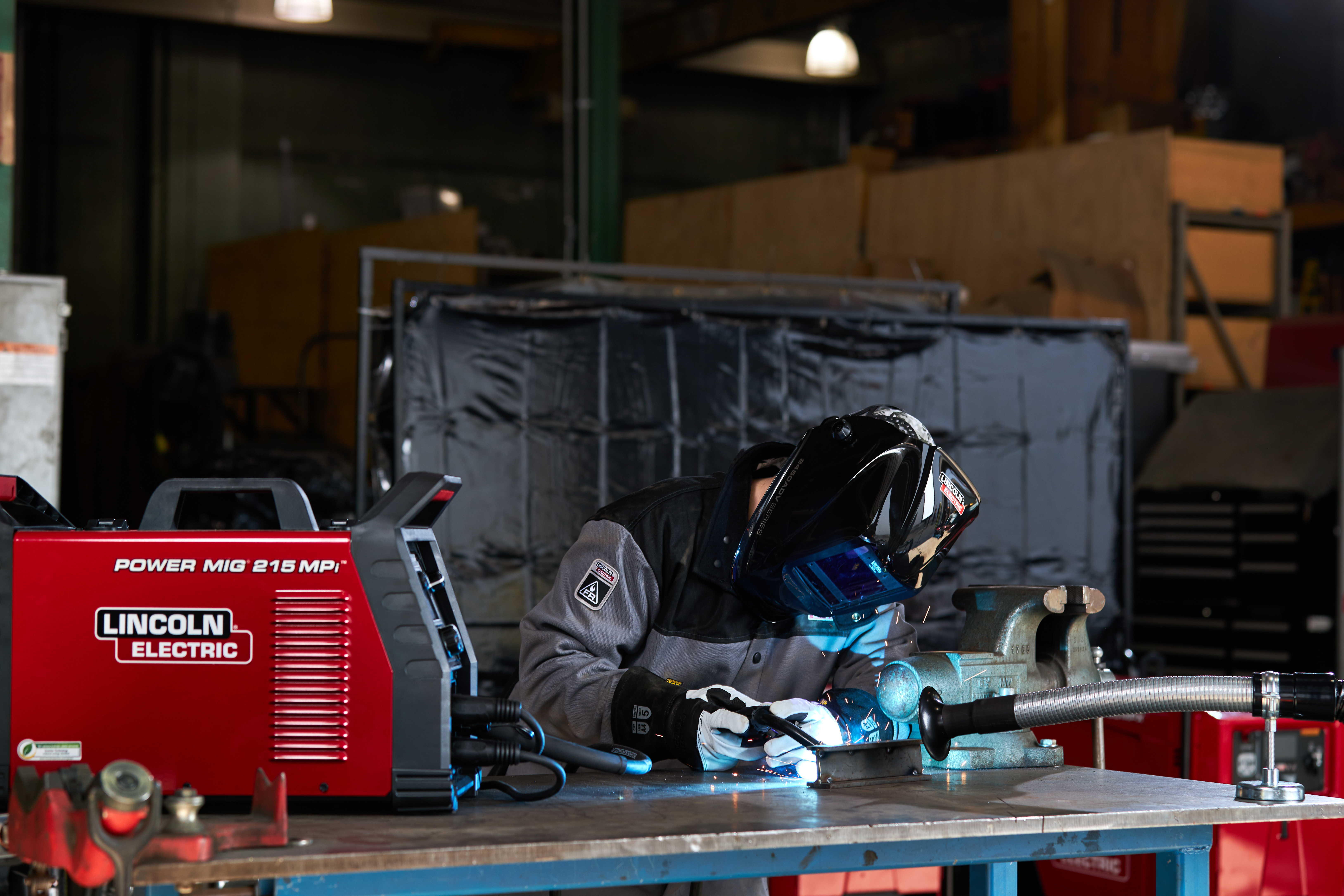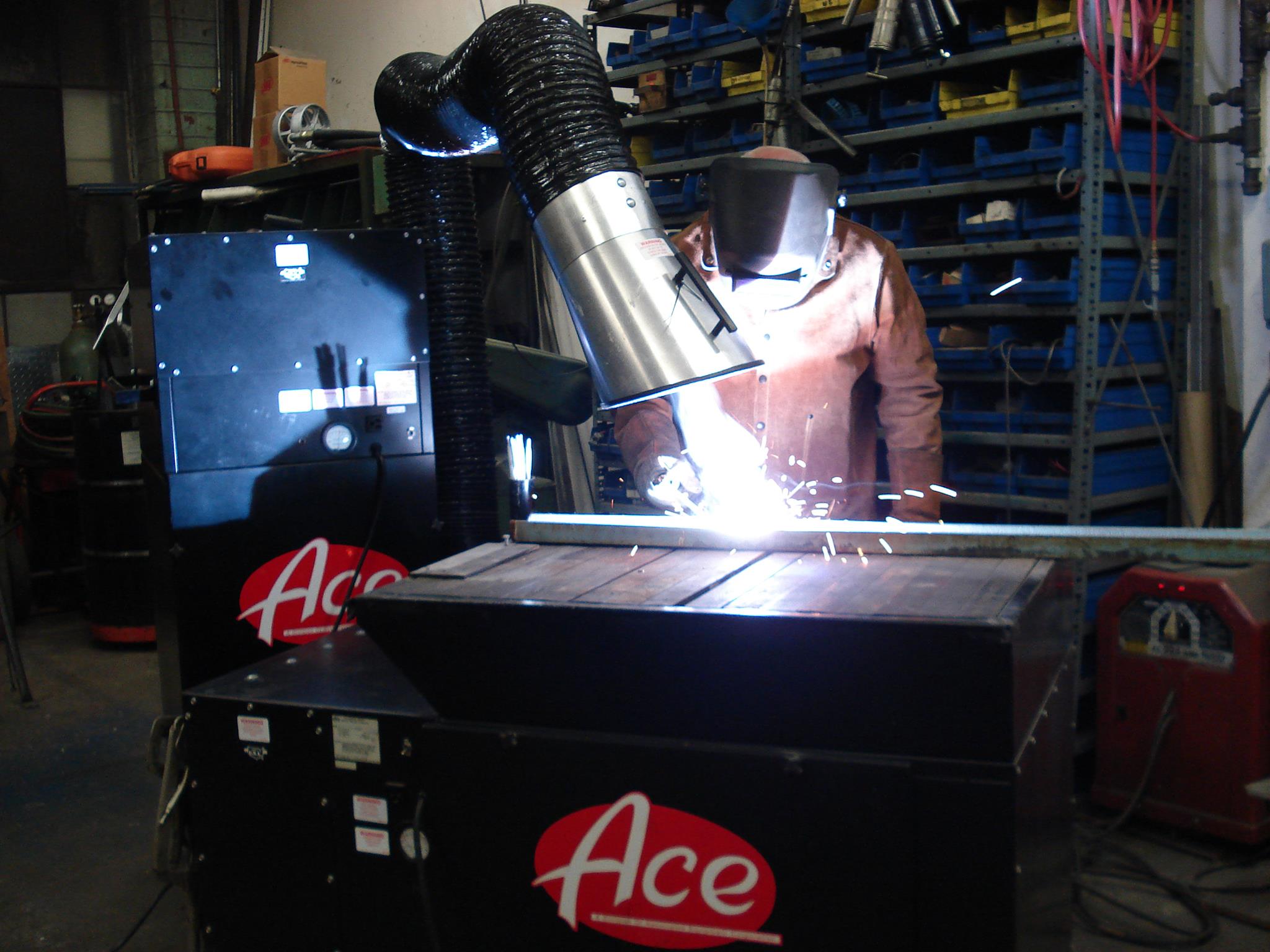National Welding Month: Career Paths in the Welding Industry
Apr 23rd 2024
April is National Welding Month, as designated by the American Welding Society (AWS). National Welding Month serves to increase awareness about the career paths offered in the welding industry. There is always high demand for welders but the number of those entering the field is decreasing. April is the perfect time to recognize the vital role of welding in various industries and to highlight the rewarding career opportunities it offers. We'll explore the diverse career paths available in the welding industry, discussing the benefits, potential drawbacks, and steps to get started on your welding journey.
Why Choose a Career in Welding?

High Demand: According to the American Welding Society, the demand for skilled welders is projected to grow significantly in the coming years, by 2027 the U.S. will need over 360,000 welding professionals. Industries such as construction, manufacturing, shipbuilding, and automotive rely heavily on welding expertise to build and maintain infrastructure, machinery, and vehicles.
Diverse Applications: Welding is a versatile skill with applications across a wide range of industries. From building skyscrapers and bridges to fabricating intricate components for medical devices and electronics, welders play a crucial role in shaping the world around us. This means there are numerous opportunities to find a path and specialization you’re passionate about.
Competitive Salaries: Welders command competitive salaries, with earning potential increasing with experience, specialized certifications, and advanced skills. According to the U.S. Bureau of Labor Statistics, the median annual wage for welders, cutters, solderers, and brazers was $47,540 in 2022, whereas the highest 10% earned more than $68,750.
Job Security: With the ongoing shortage of skilled welders, job security is a significant advantage of pursuing a career in welding. Employers are actively seeking qualified welders to fill vacant positions, offering stable employment opportunities, and potential for long-term career growth.
Hands-On Work: For individuals who prefer hands-on work and enjoy problem-solving, welding offers a dynamic and engaging career path. Whether it's fabricating custom designs, repairing critical infrastructure, or collaborating on innovative projects, welders have the satisfaction of seeing tangible results from their efforts.
Exploring Welding Career Paths
Welder/Fabricator: Welders and fabricators form the backbone of the welding industry, tasked with assembling and joining metal components to create structures, machinery, and products. They work across various industries, including construction, manufacturing, automotive, and aerospace. Welders and fabricators utilize a range of welding processes such as MIG, TIG, and stick welding to craft everything from buildings and bridges to custom furniture and artwork. Their work requires creativity, precision, and versatility, making them indispensable in diverse projects of all scales and complexities.
Pipe Welder: Specializing in joining pipes and tubing for applications like plumbing, oil and gas pipelines, and HVAC systems, pipe welders are highly skilled professionals in high demand. With the global need for energy infrastructure and pipeline construction, pipe welders play a crucial role in ensuring the integrity and safety of pipeline systems. Their expertise in specific welding techniques, such as orbital welding, allows them to create precise and reliable pipe joints that meet rigorous industry standards and specifications.
Welding Inspector: Welding inspectors are responsible for verifying that welding processes and procedures adhere to quality standards, codes, and regulations. Certified welding inspectors (CWI) undergo rigorous training and testing to qualify for inspection roles. They conduct visual inspections, non-destructive testing (NDT), and quality control checks to ensure the integrity and reliability of welded joints and structures. Welding inspectors work in diverse industries, providing expertise and guidance to ensure compliance with industry standards and specifications.
Welding Engineer: Combining engineering principles with welding expertise, welding engineers design, develop, and optimize welding processes and technologies. They collaborate with design engineers, materials scientists, and welding technicians to improve product performance, reduce production costs, and enhance manufacturing efficiency. Welding engineers are at the forefront of innovation, driving improvements in welding techniques, equipment, and materials. They work in research and development (R&D), product design, quality assurance, or technical consulting roles, contributing to the advancement of the welding industry.
Benefits and Challenges of a Welding Career
Benefits:
- Competitive salaries and potential for overtime pay.
- Opportunities for advancement with additional training and certifications.
- Hands-on work with tangible results.
- Flexibility to work in diverse industries and environments.
- Potential for job satisfaction through creative problem-solving.
Challenges:
- Exposure to fumes, heat, and potentially hazardous materials.
- Physical demands of the job, including standing for long periods and lifting heavy objects.
- Continuous learning and skill development required to stay current with industry advancements.
- Potential for work-related injuries and health risks.
- Balancing work demands with personal life can be challenging.
How to Get Started
Education and Training: Begin by exploring welding programs at vocational schools, community colleges, and technical institutes. Look for accredited programs that offer hands-on training and cover a range of welding techniques and processes. Consider your career goals and interests when choosing a program, and take advantage of lab sessions to practice welding skills under the guidance of experienced instructors.
Certifications: Consider pursuing industry-recognized certifications to validate your skills and enhance your employability. Research certification requirements and eligibility criteria, and prepare for exams by studying relevant welding codes and standards. Certifications such as the AWS Certified Welder or Certified Welding Inspector can open doors to new opportunities and higher-paying positions.
Apprenticeships and On-the-Job Training: Explore apprenticeship programs offered by employers, trade unions, and industry associations. Apprenticeships provide valuable hands-on training and mentorship opportunities while earning a wage. Seek out entry-level welding positions or internships to gain practical experience and develop your skills in a real-world work environment.
Continuing Educations and Skill Development: Lifelong learning is essential in the welding industry, where technology and techniques are constantly evolving. Stay updated on the latest advancements through continuing education programs, workshops, and professional development courses. Pursue additional certifications and endorsements to expand your skill set and increase your marketability.
Networking and Professional Organizations: Join professional organizations such as the American Welding Society (AWS) to connect with industry professionals and access resources. Attend welding conferences, trade shows, and networking events to expand your professional network and learn from industry experts. Networking can lead to job opportunities, mentorship relationships, and valuable connections within the welding community. The AWS also offers a job board for those looking for job opportunities.
As we celebrate National Welding Month, let's recognize the vital contributions of welders and the exciting career opportunities available in the welding industry. Whether you're just starting your journey or looking to advance your skills, welding offers a fulfilling and rewarding career path for those willing to embrace the challenges and opportunities it presents.


